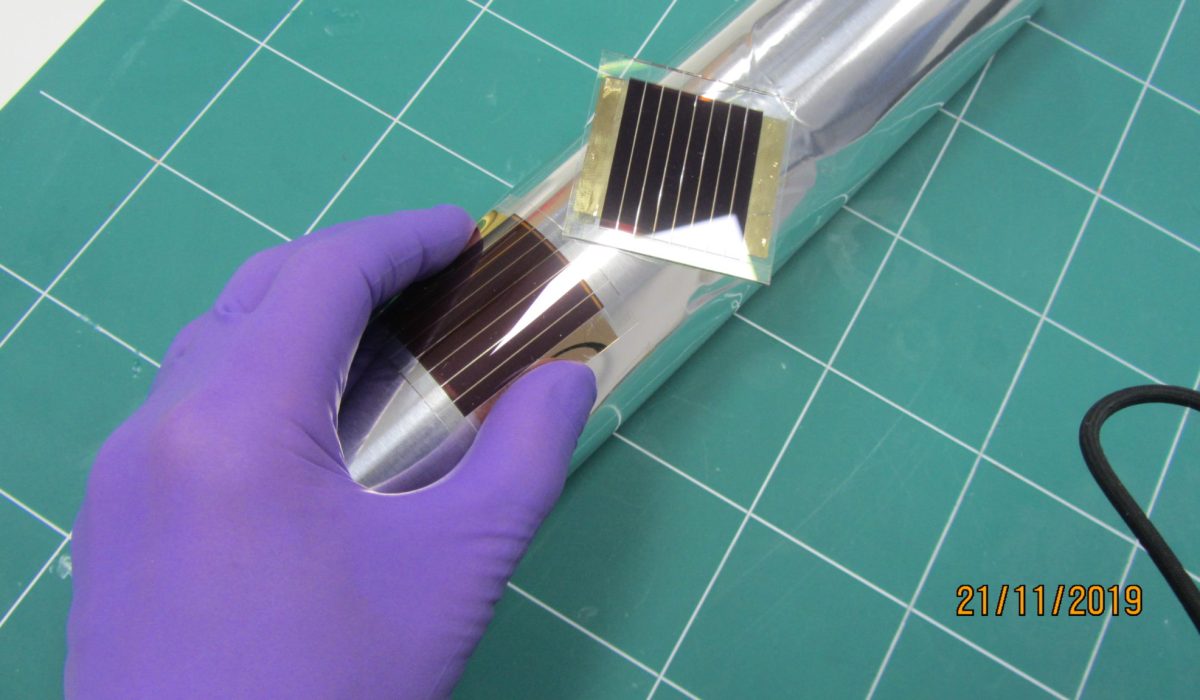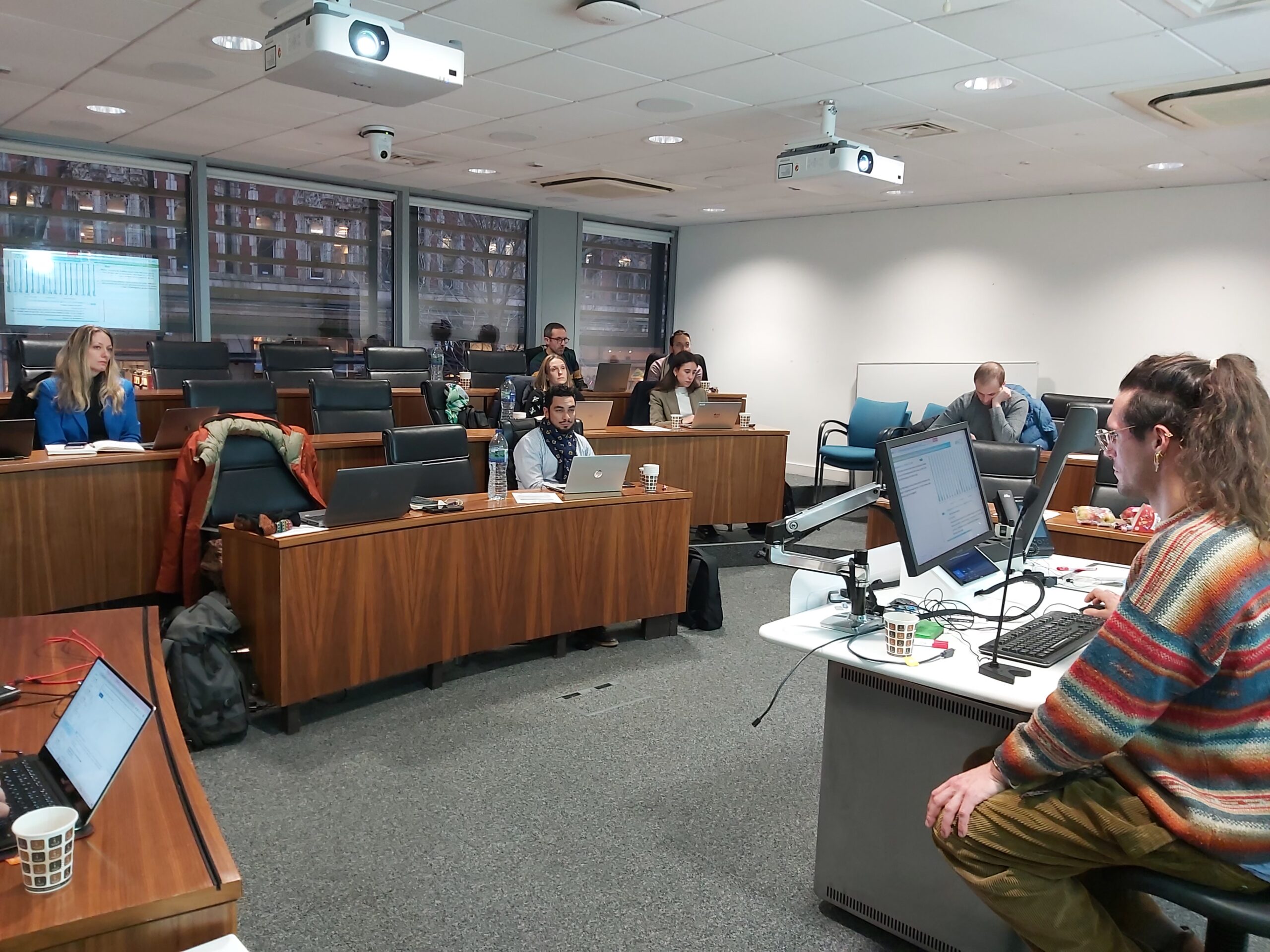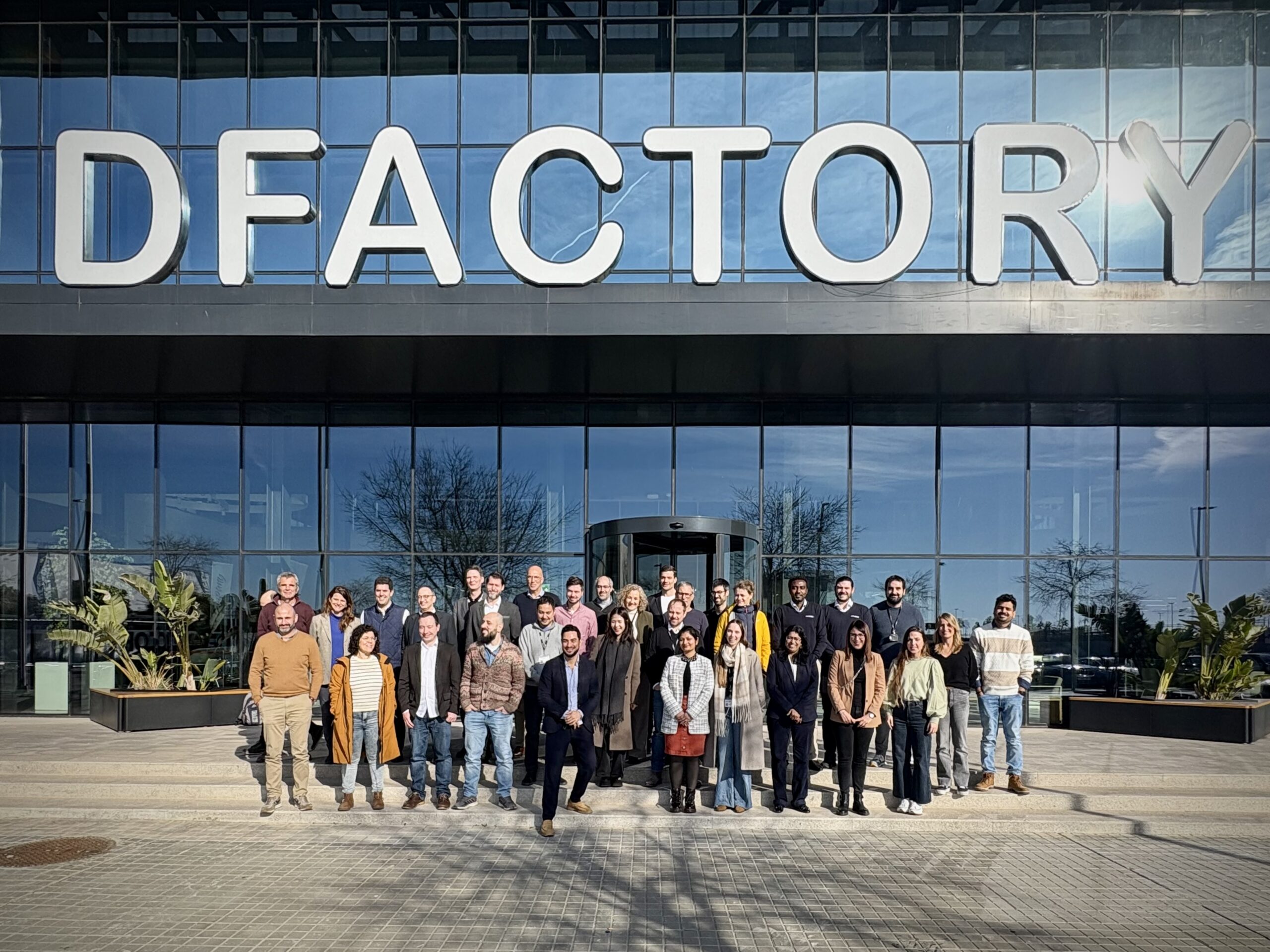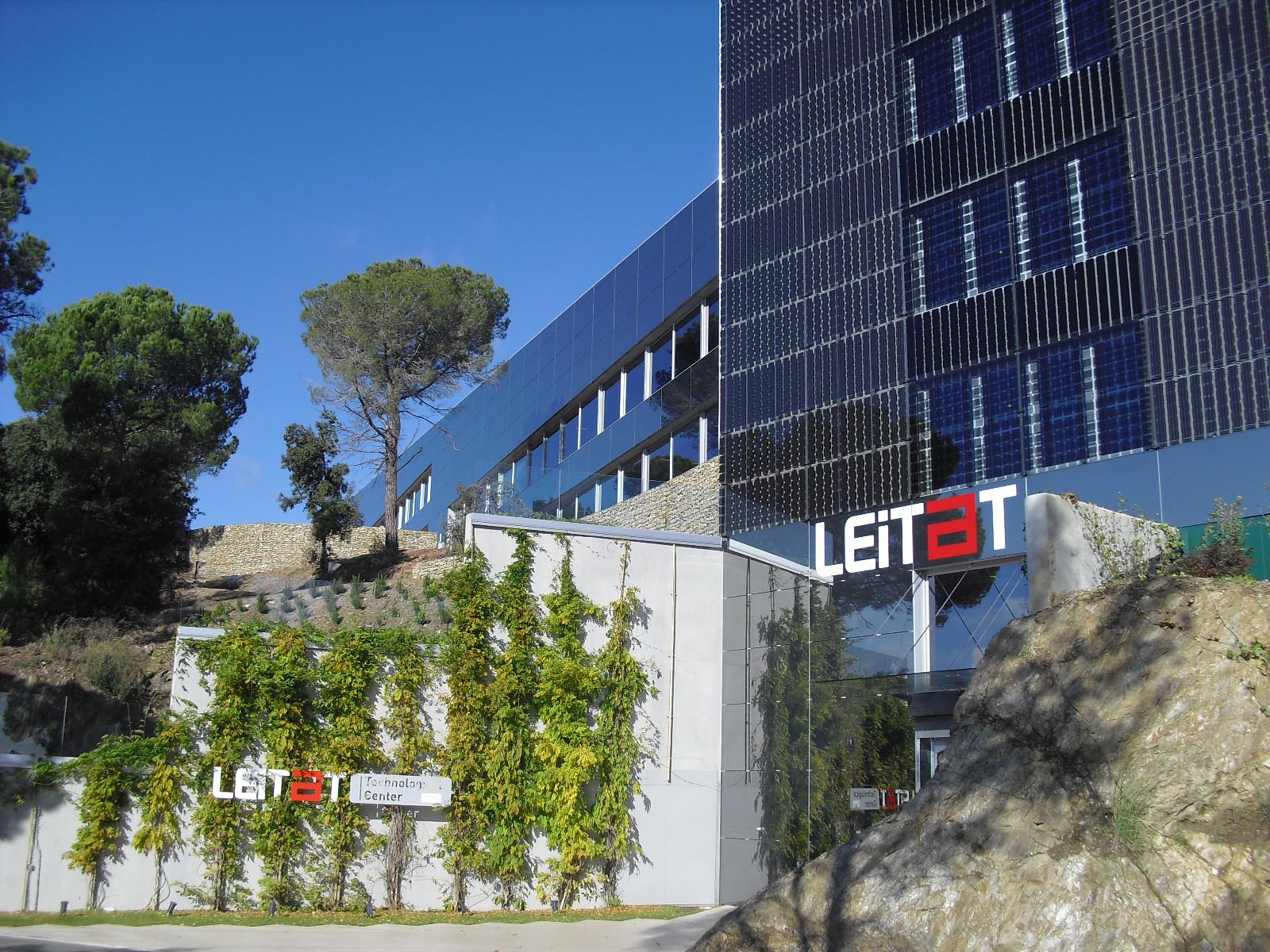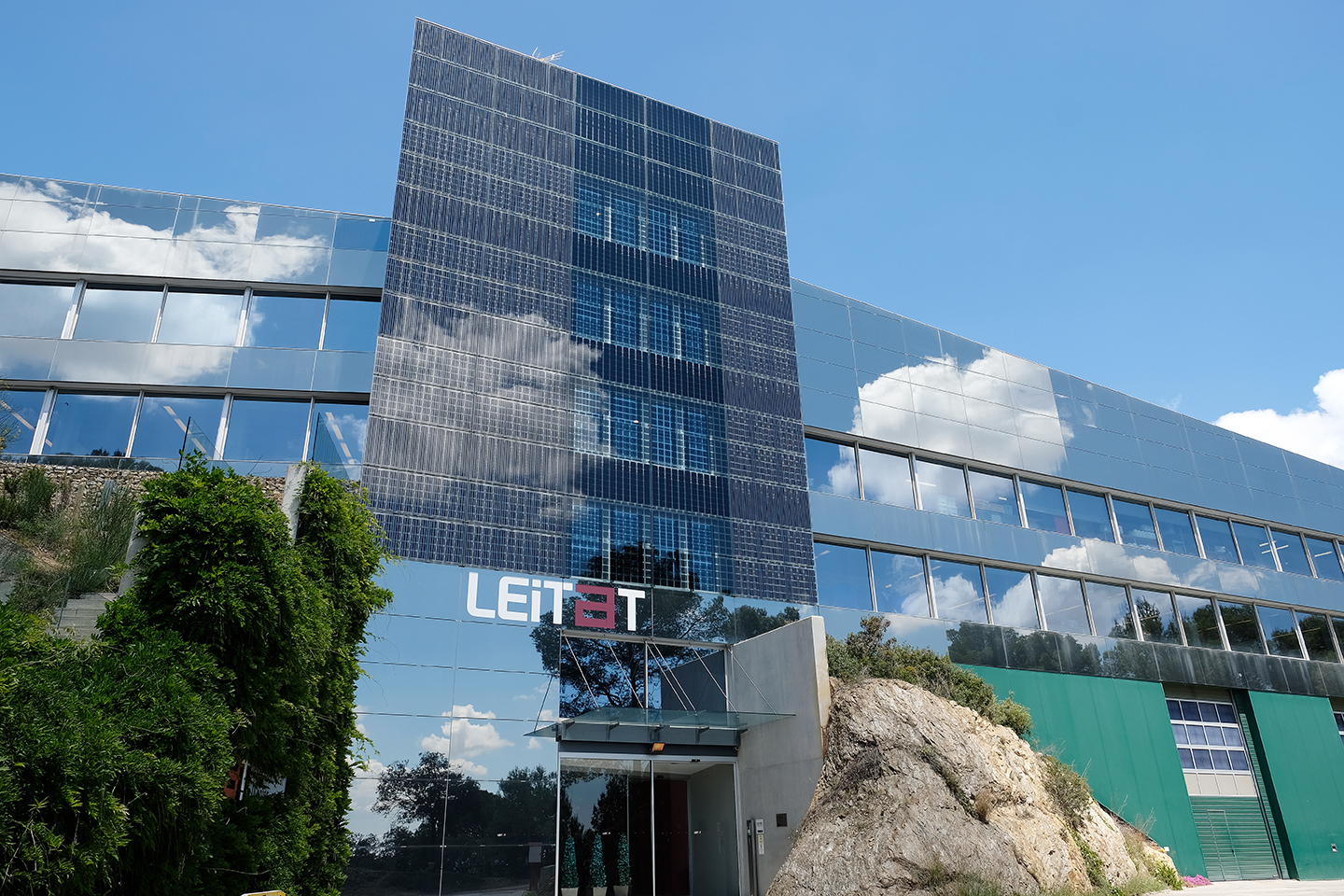Photovoltaic perovskite technology reached a new efficiency record of 20.3% with a module of 11.2 cm². This module was developed by the Apolo consortium at CEA laboratories.
Apolo is a European research project that is developing a new and promising photovoltaic technology called Perovskite for a new generation of photovoltaics. This technology has obtained a new efficiency record of 20.3% in an 11.2 cm² surface with a cheap and easy manufacturing technique.
Recently, Apolo’s team achieved this new record of efficiency in the labs of the French centre, CEA, thanks to a module with 8 cells in series, combining coating deposition techniques and laser patterning. The Perovskite solar cells are printable and flexible, allowing for cheaper manufacturing. The project aims to reach a module cost below €0.40/Wp (Watt peak).
The stability evaluation of these cells is ongoing but very promising. However, it still needs to be proven under different illumination and damp heat conditions. The Perovskite technology is aiming for industrialization in the near future.
Leitat is the coordinator of the project and works with Flexbrick, Greatcell Solar, Relational, Fraunhofer, Arkema, Accurec, CEA, Rome University, EPFL, and Uninova. Apolo has a budget of €4,997,191.25 and is financed by the European Research Programme Horizon 2020.



